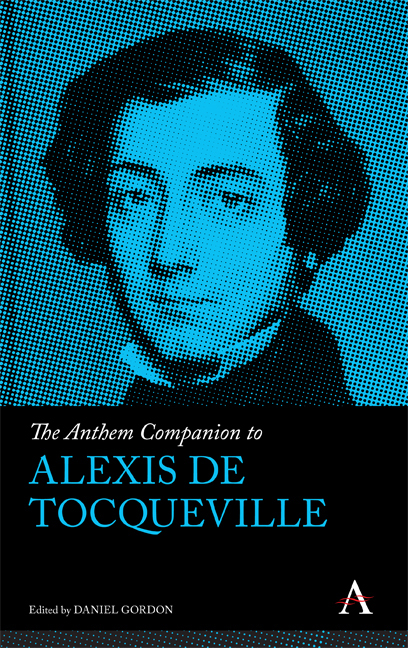Book contents
- Frontmatter
- Contents
- Introduction: Tocqueville and the Sociological Conversation
- A Note on References to Democracy in America
- Part 1 Religion And Immaterial Interests
- Part 2 Language, Literature, and Social Theory
- Chapter 3 Tocqueville Mortal and Immortal: Power and Style
- Chapter 4 Tocqueville and Linguistic Innovation
- Part 3 Globalism and Empire
- Part 4 Inequalities Inside Democracy
- Part 5 Citizenship, Participation, and Punishment
- Part 6 An Unfinished Project
- Notes on Contributors
- Index
Chapter 3 - Tocqueville Mortal and Immortal: Power and Style
from Part 2 - Language, Literature, and Social Theory
Published online by Cambridge University Press: 12 July 2019
- Frontmatter
- Contents
- Introduction: Tocqueville and the Sociological Conversation
- A Note on References to Democracy in America
- Part 1 Religion And Immaterial Interests
- Part 2 Language, Literature, and Social Theory
- Chapter 3 Tocqueville Mortal and Immortal: Power and Style
- Chapter 4 Tocqueville and Linguistic Innovation
- Part 3 Globalism and Empire
- Part 4 Inequalities Inside Democracy
- Part 5 Citizenship, Participation, and Punishment
- Part 6 An Unfinished Project
- Notes on Contributors
- Index
Summary
I've always been struck by the incoherence reigning in one and the same soul. And I've often heartily laughed seeing historians force themselves to make a single piece out of a being completely composed of retrieved bits that have no analogy between them.
Tocqueville to F. de Corcelle, September 26, 1840 (OC XV, 1, 149)For more than half a century Tocqueville has been credited with a turn toward culture in history and social science, and praised as a pioneer sociologist. Yet, with the notable exception of Raymond Aron (1968, 237), even as scholars discuss Tocqueville's approach to American or democratic “culture,” and his “pioneering” sociological theory or methods, they do not pause to note that they are speaking a language unknown to him. “Culture” is a word Tocqueville never used—or, rather, only used in the manner of his time, referring to agriculture. The string of words Tocqueville did use, condensed and translated by latter-day interpreters under the single rubric of “culture,” have now fallen into disuse. Tocqueville's most distinctive vocabulary (passions, needs of the soul, grandeur, eyes of God, habits of the heart, habits of mind, virile virtues, private and public vices, softening of mores, Providence, Christian civilization, barbarism) now has a decidedly archaic ring.
What are the implications of the disjuncture between Tocqueville's conceptual vocabulary and the terms of social science into which his ideas are translated—including the term sociology, which appears nowhere in his writings though it was used in his lifetime? Might focus on this disjunction of vocabulary throw light on the powers of lasting life with which Tocqueville is so frequently credited?
From the time of its first publication and rapid translation into English, Tocqueville's Democracy in America was acclaimed by an unusually wide spectrum of readers: Republicans, Legitimists, Liberals, Whigs, Conservatives, and Americans of the northern and southern states. As A. P. Kerr has remarked, Tocqueville had a gift for presenting a longed-for idea to every interlocutor (OC XVIII, 20). Among his contemporaries, people of diverse, even contradictory, political and religious views thought they recognized their own inchoate ideas in his writings.
- Type
- Chapter
- Information
- The Anthem Companion to Alexis de Tocqueville , pp. 45 - 64Publisher: Anthem PressPrint publication year: 2019

